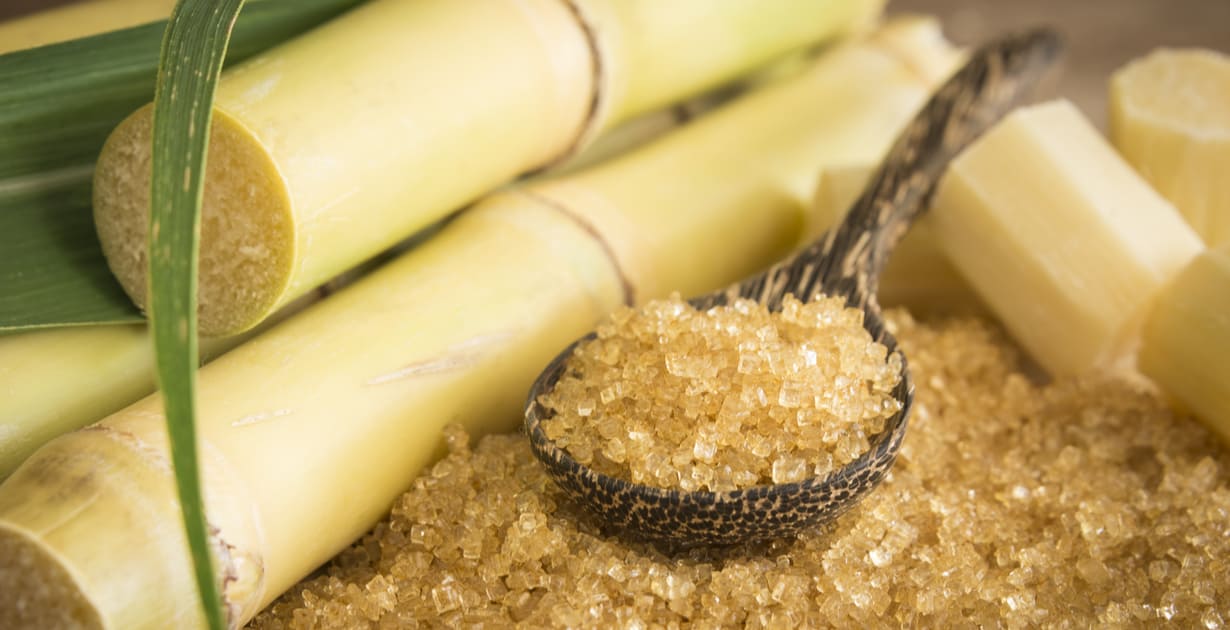Advanced Cane Sugar Processing: Enhancing Efficiency and Sustainability
Advanced Cane Sugar Processing: Enhancing Efficiency and Sustainability
Blog Article
A Detailed Review of the Health and Economic Ramifications of Walking Cane Sugar Handling on Neighborhood Neighborhoods
Walking cane sugar processing plays an essential duty fit the financial landscape of regional neighborhoods, supplying employment possibility and promoting secondary industries. However, the health implications related to high sugar intake can not be overlooked, as they add to climbing prices of excessive weight and diabetes mellitus. This nuanced vibrant invites an important exam of just how areas can optimize economic gains while dealing with the pressing health and wellness obstacles they encounter. The expedition of academic efforts and sustainable methods may just hold the trick to fixing up these conflicting interests. What strategies might areas apply to attain this equilibrium?
Financial Benefits of Cane Sugar Handling
Cane sugar handling provides significant financial benefits that expand beyond the immediate farming field. The growing and handling of sugarcane produce numerous work possibilities, from farming to manufacturing and distribution. This work generation not just supports regional economic climates however also promotes neighborhood advancement by offering stable revenue resources for households.
Furthermore, the sugar industry promotes supplementary services, including transport, equipment supply, and packaging services (Cane Sugar Processing). As these fields expand, they add to an extra robust economic structure, boosting overall neighborhood strength. The export potential of processed walking stick sugar further amplifies financial advantages, positioning regions as affordable gamers in international markets
Investment in modern processing facilities can bring about enhanced efficiency and effectiveness, therefore reducing waste and enhancing source use. This change not just profits the neighborhood economic climate yet additionally sustains sustainability efforts by reducing environmental effects.
In addition, the earnings generated from cane sugar processing can be reinvested in local infrastructure, education, and health care, advertising all natural area development. Generally, the financial advantages of walking stick sugar processing are diverse, offering a foundation for withstanding success in agricultural areas.
Wellness Risks Connected With Sugar Usage
Excessive sugar intake postures substantial wellness dangers that require major attention. High intake of sugarcoated, especially from processed beverages and foods, has actually been linked to various health complications. Among the most pressing worries is weight problems, as sugary diet regimens add to an enhanced caloric consumption without supplying crucial nutrients. This unwanted can bring about metabolic conditions, including type 2 diabetes, which has actually become increasingly widespread in both children and adults - Cane Sugar Processing.
Additionally, high sugar consumption is connected with cardiovascular disease. Raised blood sugar degrees can cause insulin resistance, a forerunner to different heart-related problems. Furthermore, sugar can have detrimental impacts on dental health, leading to cavities and periodontal condition, as microorganisms in the mouth flourish on sugar, creating acids that deteriorate tooth enamel.
Additionally, emerging research study recommends a potential web link between high sugar usage and psychological wellness disorders, such as anxiety and stress and anxiety. As areas grapple with these health and wellness threats, it becomes necessary to advertise awareness and encourage much healthier dietary choices. Attending to sugar intake is crucial not only for individual health but likewise for the general wellness of regional neighborhoods, highlighting the requirement for detailed public health and wellness methods.
Ecological Influences of Sugar Manufacturing
Regularly forgotten in conversations regarding sugar's ramifications is the considerable ecological impact of sugar manufacturing. The growing of sugarcane often necessitates comprehensive land use, leading to logging, loss of biodiversity, and disturbance of local communities. The conversion of woodlands and marshes into sugar plantations can result in habitat destruction, threatening various species and altering eco-friendly equilibrium.
Additionally, sugar manufacturing is resource-intensive, consuming substantial amounts of water for watering. This can result in deficiency of neighborhood water sources, adversely affecting both farming techniques and neighborhood access to tidy water. Furthermore, using chemical fertilizers and chemicals in read this post here sugarcane farming can add to dirt deterioration and water pollution, as runoff from these chemicals gets in close-by rivers and lakes, impacting marine life and human health and wellness.
The environmental impact includes the processing stage, where energy intake and waste generation additional exacerbate eco-friendly worries. Air pollution from melting sugarcane fields, in addition to greenhouse gas discharges, add to environment modification. As such, the ecological ramifications of sugar production warrant significant factor to consider, advising stakeholders to take on more sustainable methods to minimize these adverse effects on local environments and areas.
Task Production and Community Growth
The environmental obstacles posed by sugar manufacturing are Get More Information usually reversed by its possibility for financial benefits, particularly in work creation and community growth. The walking stick sugar market works as a considerable resource of employment in lots of country locations, providing tasks throughout numerous ability levels, from farming labor to handling and circulation duties. This work not only supports individual households but additionally adds to the overall economic vitality of neighborhood neighborhoods.
In addition, the establishment of sugar processing centers boosts ancillary businesses, such as transportation services, equipment supply, and maintenance suppliers. As these organizations grow, they create added work and strengthen regional economic situations. The revenue generated from the sugar sector likewise brings about raised tax obligation profits, which can be reinvested into community services such as framework, medical care, and education advancement.
Furthermore, the sugar sector commonly participates in community advancement initiatives, such as sustaining local institutions and health programs, consequently enhancing the top quality of life for locals. By fostering strong area ties and promoting economic development, the walking stick sugar processing field plays a crucial role in uplifting local populaces, making it a crucial part of sustainable development approaches in sugar-producing areas.
Balancing Wellness and Economic Development
In navigating the intricacies of walking cane sugar processing, an important obstacle hinges on balancing wellness considerations with economic development. The sugar sector considerably adds to neighborhood economic climates by useful site producing work, boosting related industries, and boosting tax obligation earnings. However, the health and wellness ramifications connected with too much sugar intake can result in persistent conditions such as excessive weight, diabetes mellitus, and cardiovascular issues, which can concern public health and wellness systems and reduce labor force performance.

In addition, regulatory structures can play a pivotal function in leading industry practices towards more sustainable and health-conscious strategies. By cultivating collaboration between government bodies, health and wellness organizations, and the sugar market, neighborhoods can browse the duality of health and wellness and financial development, making certain that the advantages of walking cane sugar handling are equitably shared while focusing on public wellness.
Verdict
To conclude, the processing of cane sugar provides both significant economic advantages and notable health and wellness threats for neighborhood areas. While it cultivates work development and promotes regional development, the involved health issues, specifically concerning obesity and diabetes, necessitate a mindful harmonizing act. By promoting responsible intake and investing in area education and sustainable techniques, it is feasible to maximize financial advantages while reducing adverse wellness impacts, thus ensuring a much healthier future for regional populations.
Furthermore, sugar can have damaging impacts on oral wellness, resulting in cavities and gum tissue illness, as bacteria in the mouth grow on sugar, creating acids that erode tooth enamel.
Attending to sugar consumption is crucial not just for individual wellness however additionally for the general health of regional communities, stressing the need for extensive public health approaches.
Often forgotten in discussions about sugar's implications is the significant ecological influence of sugar manufacturing. The health implications linked with extreme sugar consumption can lead to persistent illness such as obesity, diabetes mellitus, and cardio concerns, which can worry public wellness systems and decrease labor force productivity.

Report this page